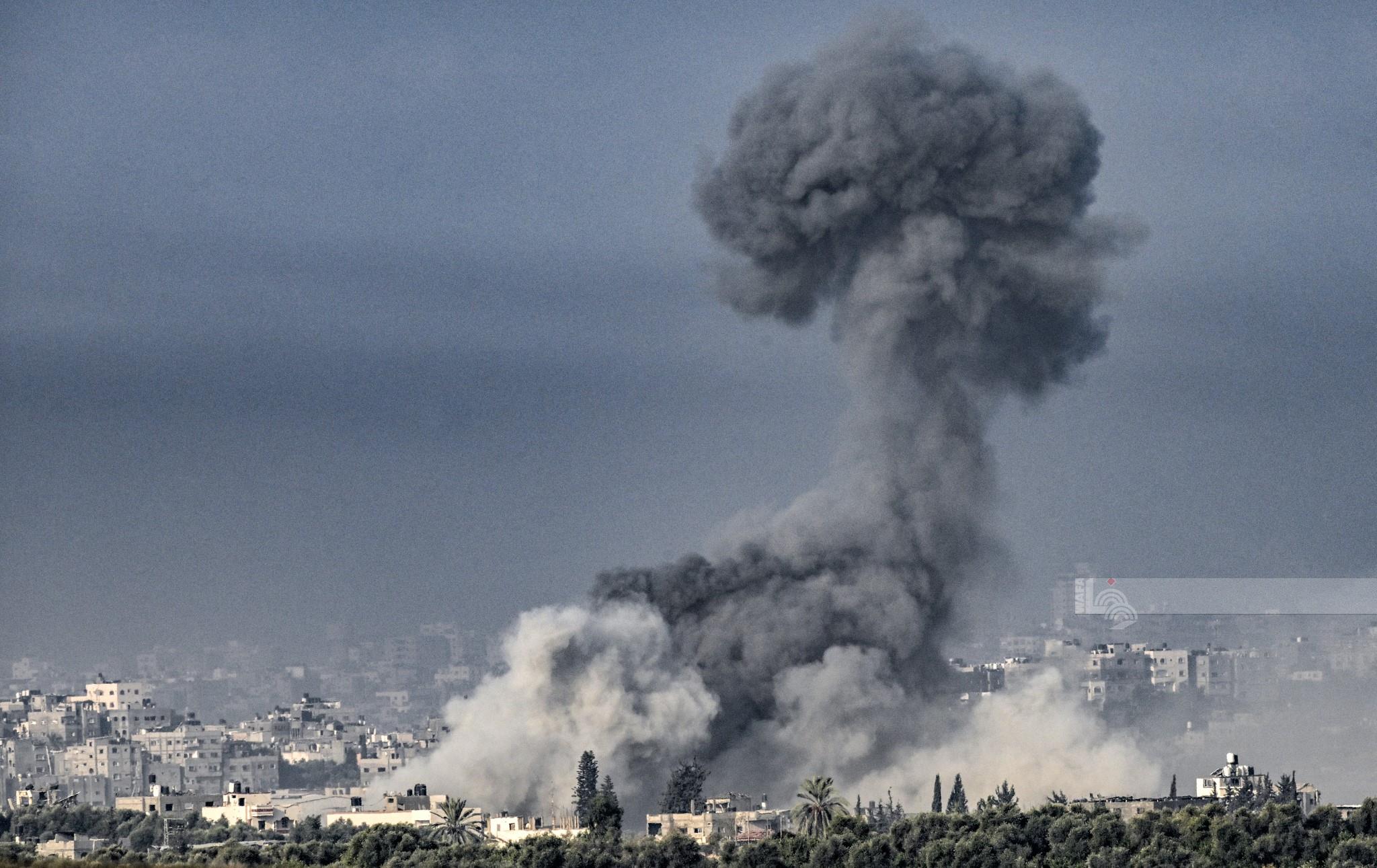Journalists have also been among Israel’s primary targets since it waged its war on Gaza.
Israeli officials seized a camera and broadcasting equipment from The Associated Press (AP) in southern Israel, alleging the news agency violated a newly enacted media law by supplying footage to Al Jazeera.
The Qatari satellite channel is among thousands of clients that receive live video feeds from AP and other news outlets. The AP has condemned the action.
“The Associated Press decries in the strongest terms the actions of the Israeli government to shut down our longstanding live feed showing a view into Gaza and seize AP equipment,” said Lauren Easton, vice president of corporate communications at the news organisation.
“The shutdown was not based on the content of the feed but rather an abusive use by the Israeli government of the country’s new foreign broadcaster law. We urge the Israeli authorities to return our equipment and enable us to reinstate our live feed immediately so we can continue to provide this important visual journalism to thousands of media outlets around the world.”
The incident occurred in the southern town of Sderot, where Israeli officials from the Communications Ministry arrived to seize the equipment. They handed the AP a document signed by Communications Minister Shlomo Karhi, accusing and alleging the organisation of breaching the foreign broadcaster law.
Before the equipment was taken from them, it was transmitting a general view of northern Gaza, the news agency said.
“The AP complies with Israel’s military censorship rules, which prohibit broadcasts of details like troops movements that could endanger soldiers. The live shot has generally shown smoke rising over the territory,” it added.
The seizure came after a verbal directive last Thursday to cease the live transmission, which the AP refused to comply with.
“In accordance with the government decision and the instruction of the communications minister, the communications ministry will continue to take whatever enforcement action is required to limit broadcasts that harm the security of the state,” the Israeli ministry said in a statement, as quoted by AP.
This is not the first such instance Israel has cracked down on freedom of press.
On May 5, Israeli officials shut down the offices of Al Jazeera, confiscated its equipment, banned its broadcasts, and blocked its websites.
The Israeli government unanimously voted to shut down Al Jazeera’s local bureau, banning the Qatar-based network from broadcasting in the country, the Israeli Prime Minister announced at the time.
Israel has a long-standing contentious relationship with the Qatar-based broadcaster, accusing it of biased reporting against the country. Prime Minister Benjamin Netanyahu has labelled Al Jazeera a “terror channel” that incites violence.
Despite these challenges, Al Jazeera remains one of the few international news organisations maintaining a presence in Gaza, delivering live reports on airstrikes, hospital conditions, and accusations of Israeli-led massacres.
The Qatari network insisted that it will continue its work despite all efforts aimed at hindering its efforts to present to its global audience the reality on the ground in Palestine.
Al Jazeera has been on the receiving end of attacks by Israel, particularly since the beginning of the brutal onslaught in Gaza on October 7, 2023, for its detailed coverage on the ground.
Walid Omary, Al Jazeera’s bureau chief in Jerusalem, said that the network recorded more than 50 attacks against its journalists since the start of the war.
Journalists in Gaza have also been among Israel’s primary targets since it waged the genocidal war.
At least 141 journalists are now among at least 35,456 Palestinians killed by Israeli occupation forces since the beginning of the war.
Al Jazeera’s staff and their families in Gaza have been among Israel’s key targets throughout the war.
The world first witnessed this on October 25, 2023, when Israel killed four members of prominent Al Jazeera journalist and Gaza bureau chief Wael Dahdouh’s family.
Israel killed Dahdouh’s wife, 15-year-old son, seven-year-old daughter and infant grandson in a strike in the south, despite Israel announcing the area to be a safe zone before the attack.
Dahdouh, now in Doha, then survived a missile strike on December 15 in Khan Younis, where Al Jazeera’s cameraman, Samer Abu Daqqa, succumbed to his injuries after being left to bleed for six hours.
Israeli forces prevented medics from reaching him with nonstop shelling and the ambulances had to receive prior approval to reach Abu Daqqa.
Israel then killed Dahdouh’s eldest son, Hamza, on January 7 in a direct missile strike that targeted a car with journalists in Khan Younis, southern Gaza.
Israel’s military was quick to justify the attack by claiming that it “identified and struck a terrorist, though a probe by The Washington Post on March 19 dismissed Israel’s allegations.







